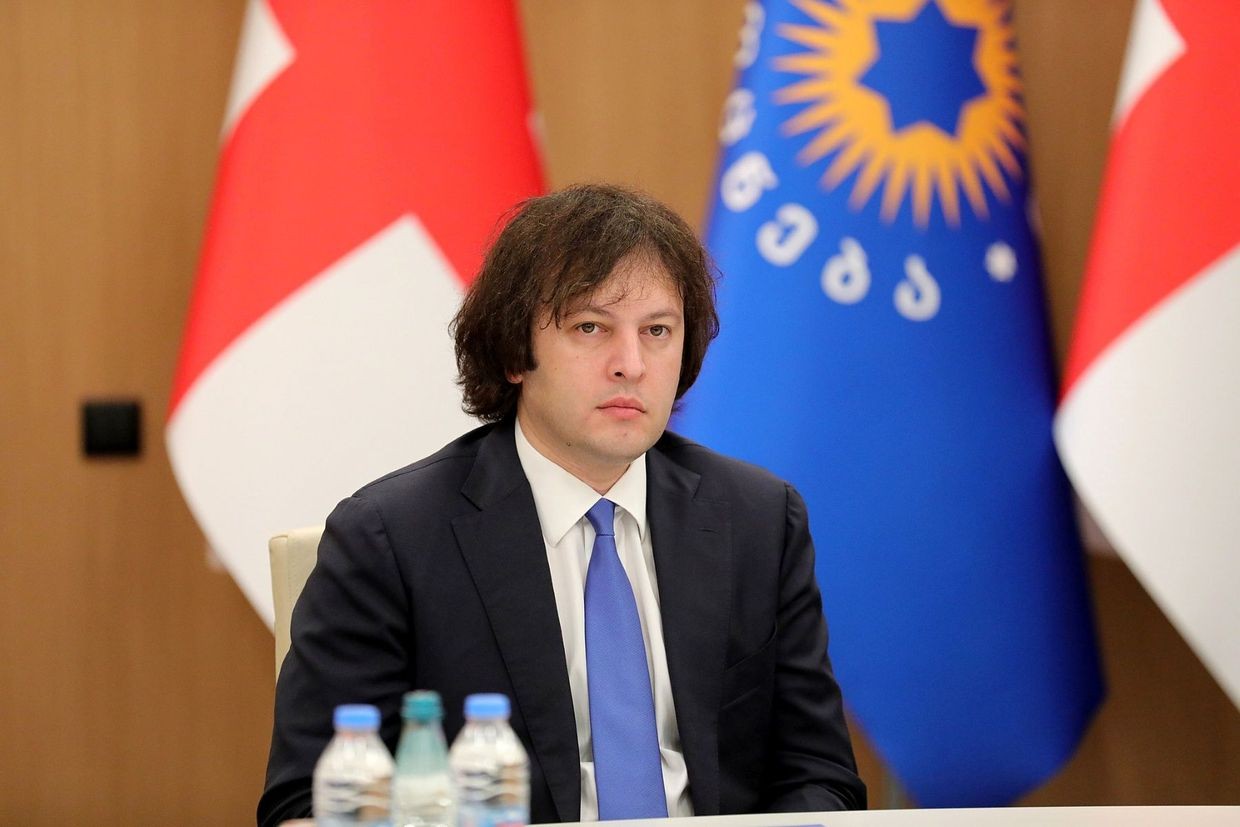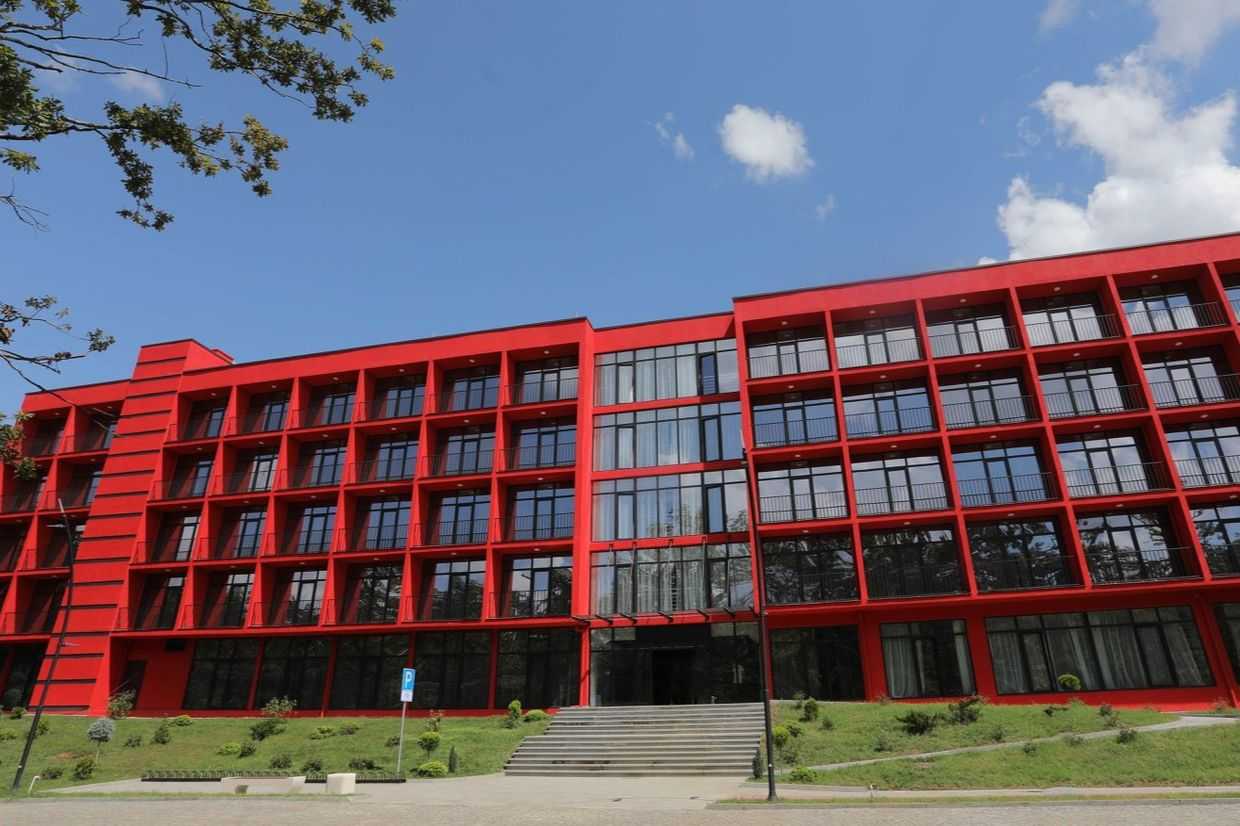
Georgian Prime Minister Irakli Kobakhidze has criticised the EU for warning Georgia about a potential suspension of its visa liberalisation act, accusing it of using it to blackmail Tbilisi.
The government’s outrage was triggered by a letter from the European Commission’s Directorate-General for Migration and Home Affairs addressed to Georgia’s Foreign Minister, Maka Botchorishvili.
The letter, published by Georgia’s Public Broadcaster (GPB), referenced the recommendations issued by the European Commission to Georgia in December 2024. The recommendations followed the adoption of the Seventh Visa Suspension Mechanism Report, which highlighted ‘serious breaches of fundamental rights and freedoms by Georgia’.
The letter urged the Georgian side to provide the commission with an update on the implementation of the recommendations by the end of August and, ‘if not already done, to take appropriate measures to address the issues raised in all commission recommendations’.
According to the letter, the commission will assess Georgia’s compliance with the recommendations in the context of the next visa suspension mechanism report.
‘Based on this assessment, in case of persisting non-compliance, the commission could take appropriate measures on the basis of the article 8 of the revised visa regulation, specifically activating the visa suspension mechanism’.
The letter noted that Georgia’s inaction regarding the recommendations led to the suspension of visa exemption for diplomatic and service passport holders in January 2025.
‘We count on your cooperation in addressing this important matter and we reaffirm the EU's continued commitment to strong and values-based relations with Georgia’, the letter concluded.
The annex to the letter listed eight recommendations, including the protection of fundamental rights of all Georgian citizens and repealing any legislation that may restrict those rights, including a ‘transparency of foreign influence’ law targeting civil society and independent media, as well as anti-queer legislation.

Other recommendations included aligning Georgia’s visa policy with the EU list of visa-required third countries, as addressing the issue of unfounded asylum applications and irregular stays in EU member states. The establishment of an Asset Recovery Office and Asset Management Office, as well as adopting a new anti-corruption strategy were also listed.
It remained unclear whether this is the letter EU foreign policy chief Kaja Kallas said she would send to Georgia on Tuesday. The contents of the letter matched the points mentioned by Kallas, though she explicitly named the end of August as a deadline to comply with the recommendations.
‘So far, we have kept this position that we don't want to hurt Georgian people and taking away the visa free regime is really having an impact for them. But at the same time it’s also an issue of credibility of the EU’, she said.
‘The point being that as they have been given a deadline until the end of August to comply with this, then the question is, how do we react if these recommendations are not being fulfilled. And as we hear, seven out of eight opposition leaders have been put in jail, this is not really in accordance with the first point that I pointed out’, Kallas stated, referring to the recommendation about protection of fundamental rights.

‘Not an existential issue’ for Georgian Dream
Reacting to the letter, Georgian Dream representatives once again accused Brussels of interfering in Georgia’s internal affairs and engaging in blackmail — particularly over the demand to repeal restrictive laws.
Responses from the ruling party representatives were dominated by themes of peace and family values — issues Georgian Dream repeatedly claimed to defend against threats from external powers.
‘If the choice comes down to peace and stability or visa liberalisation, we will, of course, prioritise peace and stability’, Kobakhidze stated, following his claim that the ‘transparency of foreign influence’ law — branded by critics as the ‘Russian law’ — is a guarantee of peace in the country.
‘When they tell you not to pass a law that limits a foreign power’s ability to stage a revolution in your country, it means they are threatening you with the loss of stability and peace’, he added.
According to Kobakhidze, ‘Whether you travel to Europe with a visa or without one is not an existential issue’ — unlike peace and stability.
Parliamentary Speaker Shalva Papuashvili focused particularly on the EU’s demand to repeal the law on ‘family values and child protection’, which bans what ruling party calls ‘LGBT propaganda’, as well as same-sex marriage and gender-affirming medical treatment.
According to Papuashvili, ‘Brussels is telling us to follow a false ideology and say that a man can become a woman’.
‘In Europe, we remember a time when they claimed the Earth was flat, and those who said otherwise were burned at the stake. That’s exactly what Brussels’ behaviour reminds me of today’, he added.
Georgian Dream’s Secretary General and Tbilisi Mayor Kakha Kaladze echoed this rhetoric, calling the commission’s letter ‘blackmail’ and claiming that the real target is Georgia’s ‘patriotic government’.
‘They’re trying to overthrow the current government and bring agents to power — people who will do anything, even against the country’, Kaladze said.
Since Georgia secured EU candidate status in 2023, relations between Tbilisi and Brussels have plummeted, spurred on by a variety of actions taken by the ruling Georgian Dream party that are widely seen as eroding the country’s democratic institutions.
The EU, along with the US and the UK, have imposed a number of sanctions and other punitive measures in response, as well as suggesting others.
One of the moves that has been floated is the suspension of Georgia’s visa-free access to the EU, which was originally granted in 2017 and remains one of Georgian Dream’s oft-cited foreign policy victories.
So far, the proposal has yet to come to fruition, although the EU Council has ruled that the visa-free status for Georgian diplomats should be revoked, a move seen as largely symbolic as Georgian diplomats can still travel with their normal passports.
Unlike passing sanctions, suspending visa-free status can be agreed on with just a qualified majority, meaning 55% of EU member states representing at least 65% of the total EU population.

This article was translated into Armenian and republished by our partner CivilNet.










